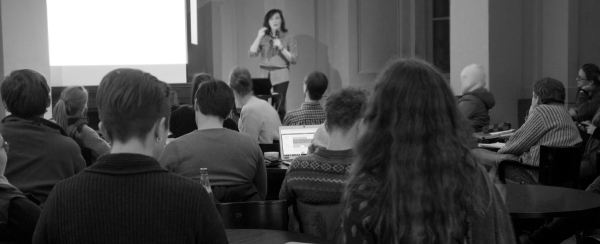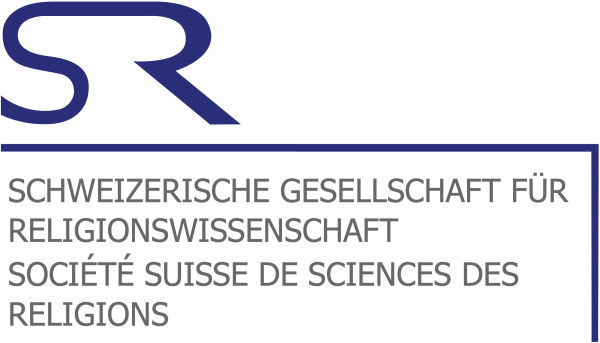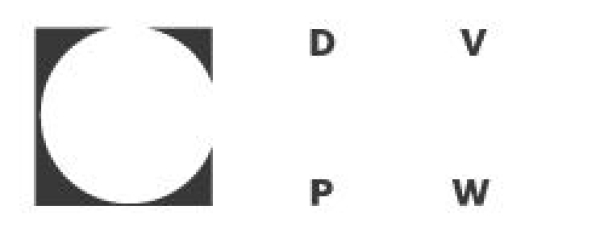|
If the newsletter does not display properly, please click here. |

|
|
|
|
|
Dear friends and colleagues, As every week, we have gathered news from our KFG and relevant information for you. We are pleased to announce the upcoming colloquium next week in a hybrid format again. Furthermore, the deadline for the call for abstracts to the KFG workshop "(Im)Materiality of the Secular City: Trials and Tribulations" has been extended until the end of February. Finally, we would like to recommend an interview with a KFG fellow and draw your attention to three Call for Papers. Enjoy and have a good week! Anja & Lucy |
|

|
|
KFG Colloquium: Project Presentation (in German) by Ebrahim Towfigh, 23 FebruaryWe are happy to announce that next Wednesday our Senior Research Fellow Ebrahim Towfigh will give a presentation on his current research project. You find the relevant information and readings in our Member Area. The colloquium is planned to take place as a hybrid event. If you would like to attend in person, please register via e-mail. The number of physically present participants again is limited to 10 people. The 2G plus rule applies, which means that participants on site must be fully vaccinated or recovered and, in addition, need to take a rapid test in the office beforehand. In the member area, you will also find the zoom connection data in case you plan to join the colloquium online. 23 February | 9.15–11.45 a.m. (CET) Hybrid format | Strohsack, 4.55 and via zoom |
|

|
|
Call for Abstracts – Extended Deadline: KFG-Workshop “(Im)Materiality of the Secular City: Trials and Tribulations”, 23-24 JuneIn December, we announced the KFG-Workshop and the respective Call for Abstracts on “(Im)Materiality of the Secular City: Trials and Tribulations”, which will take place in June 2022. The workshop will be organized by our Senior Research Fellows Mariam Goshadze and Thomas Schmidt-Lux together with Margaux Myriam Fitoussi from Columbia University, with the goal to discuss the materiality of the secular and of processes of secularisation in urban spaces. If you wish to participate, please send your abstract to multiple-secularities@uni-leipzig.de. The deadline for abstract submission has now been extended.
Notification of acceptance: 1 April Deadline for short papers (2000 words): 31 May Workshop: 23-24 June
|
|

|
|
Interview with Dagmar Schwerk on her book “A Timely Message from the Cave”We would like to draw your attention to an interview with our Senior Research Fellow Dagmar Schwerk on her book “A Timely Message from the Cave: The Mahāmudrā and Intellectual Agenda of dGe-bshes Brag-phug-pa dGe-'dun-rin-chen (1926-1997), the Sixty-Ninth rJe-mkhan-po of Bhutan”, published in 2020. In her monograph, she covers the thus far unstudied reception history of the Mahāmudrā doctrine and meditative system in the Bhutanese branch of the Drukpa Kagyü school between the 18th and 19th centuries. From the interview with the New Books Network a longer podcast has emerged, where Dagmar thoroughly talks about the differentiation between religion and politics in Bhutan and Tibet.
Schwerk, Dagmar. A Timely Message from the Cave: The Mahāmudrā and Intellectual Agenda of dGe-bshes Brag-phug-pa dGe-’dun-rin-chen (1926–1997), the Sixty-Ninth rJe-mkhan-po of Bhutan. Indian and Tibetan studies 11. Hamburg: Department of Indian and Tibetan Studies, Universität Hamburg, 2020.
|
|

|
|
Call for Papers: Panel on “Salvaging hope, seeking survival: Futurities in postwar borderlands and broken ecologies after wars” at EASA Conference, 26–29 JulyOur Associate Member Sana Chavoshian, currently working as Research Fellow at Leibniz-Zentrum Moderner Orient, and Younes Saramifar from the Vrije Universiteit Amsterdam are organizing a panel for the forthcoming EASA conference to be held in Belfast on 26–29 July. The panel follows hope in postwar conditions and reconstructions when hope is co-opted by increased governmentality, regimes of death, conflicts' wreckages and survival revolves around morality and precarity. You are welcome to share the Call among your contacts or send an abstract for consideration via e-mail to the workshop’s organizers. Submission of paper proposals: 21 March Conference date: 26–29 July | Queen's University Belfast
|
|

|
|
Call for Papers: Annual Conference of the Swiss Society for Religious Studies, 13–14 OctoberThe annual conference of the Swiss Society for Religious Studies will this year focus on the theme of kingship. The conference will be organized by the Faculty of Theology and Sciences of Religions at the University of Lausanne with three key subjects: 1) Historical or ethnographic case studies focusing on a circumscribed context, a royal ritual, a myth, etc., without spatial or temporal restrictions, 2) Historiographical investigations of the analyses of sacred kingship that have marked the history of our studies and 3) Theoretical considerations on the epistemological stakes of a reflection on kingship as a general phenomenon, or on the interactions between kingship and religion. Persons interested in these topics are welcome to submit a proposal, which should not exceed 200 words and can be written in English, French, German or Italian. The presentations themselves will last 30 minutes followed by 15 minutes of discussion. Please send you proposition to Nicolas Meylan. Submission of proposals: 1 March Conference date: 13–14 October | University of Lausanne
|
|

|
|
Call for Papers: Annual Conference of the Working Group on Politics and Religion (GPSA) on “Religion und Politik in Europa und der Europäischen Union: Immer noch das ‘Christliche Abendland’?” (“Religion and Politics in Europe and the European Union: Still the ‘Christian Occident’?”), 4–5 OctoberThe German Political Science Association (GPSA) invites all interested scholars to submit abstracts to the annual conference of the Working Group on Politics and Religion. This year’s conference is based on the question of the influence of religious principles and their use by political actors in European democracies and in the increasingly conflictual relationship between nation states and the European Union. Abstracts (approx. 500 words) should in particular address the following topics and questions: 1) Contributions on the history of ideas and concepts that reconstruct and analyse the historical narrative of the "Christian Occident" and the Christian democratic foundations of Europe, 2) normative-theoretical contributions on the (ambivalent) role of religion in the European public sphere and 3) relevant case studies on the political mobilisation of religious principles and identities or on the relevant positions of religious and political actors. Submission of abstracts: 21 February Conference date: 4–5 October
|
|
|
If you have any content that you think suits the purpose of the weekly, please feel free to send it to us at multiple-secularities@uni-leipzig.de. |
|
|
Kolleg-Forschungsgruppe "Multiple Secularities - Beyond the West, Beyond Modernities" Nikolaistraße 8-10, 04109 Leipzig Mail: multiple-secularities@uni-leipzig.de |